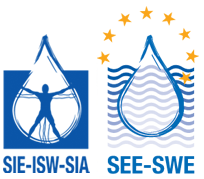Context
With its numerous lakes and major glaciers, the largely semi-arid Tajikistan has abundant fresh water resources: about 60% of Central Asian water streams are originating from its mountains. However, due to the rough terrain, population growth and collapse of centrally subsidized drinking water supply and irrigation systems, the delivery of the water to the users remains a challenge. Tajikistan’s difficulties in delivering basic services are hampering its economic development, harming livelihoods and health of its people. Inequalities in access to irrigation water causes local conflicts between users, whilst fuelling tensions around water allocation and use in the region. In addition, due to impact of climate change and melting of glaciers the number of water-related disasters is increasing.
In December 2015 the Government of Tajikistan endorsed the Water Sector Reform Programme 2016-2025. The reform aims to shift water management from an administrative and sectoral approach to IWRM (Integrated Water Resources Management) and river basin principles, whilst developing new (and replace existing Soviet era) regulatory, legislative and operational frameworks.
Recent breakthrough for our full cost recovery in rural water supply
We achieved a major breakthrough in our Rural Water Supply and Sanitation (RWSS) Project in the Ferghana Valley, with the Antimonopoly Agency of both national and provincial levels approving the water tariffs in all rural water systems that were implemented with support of the project. The village water systems located in Konibodom, Isfara, Mastchoh and Spitamen districts all apply tariffs that not only cover the full costs of operation and maintenance, but also capital costs. In Tajikistan, tariffs are usually kept low for political reasons and full cost recovery is rarely achieved even in urban areas; thus the tariffs met strong initial opposition from Anti-monopoly Agency at provincial and national level.
However, with our persistent follow-up, lobbying and communication of the successful experience in the projects eventually resulted in the recent approval of the tariffs. This precedent may now facilitate the replication of cost recovery in rural water system in other regions in Tajikistan.
This breakthrough was made possible by the support of the Swiss Agency for Development and Coooperation.



